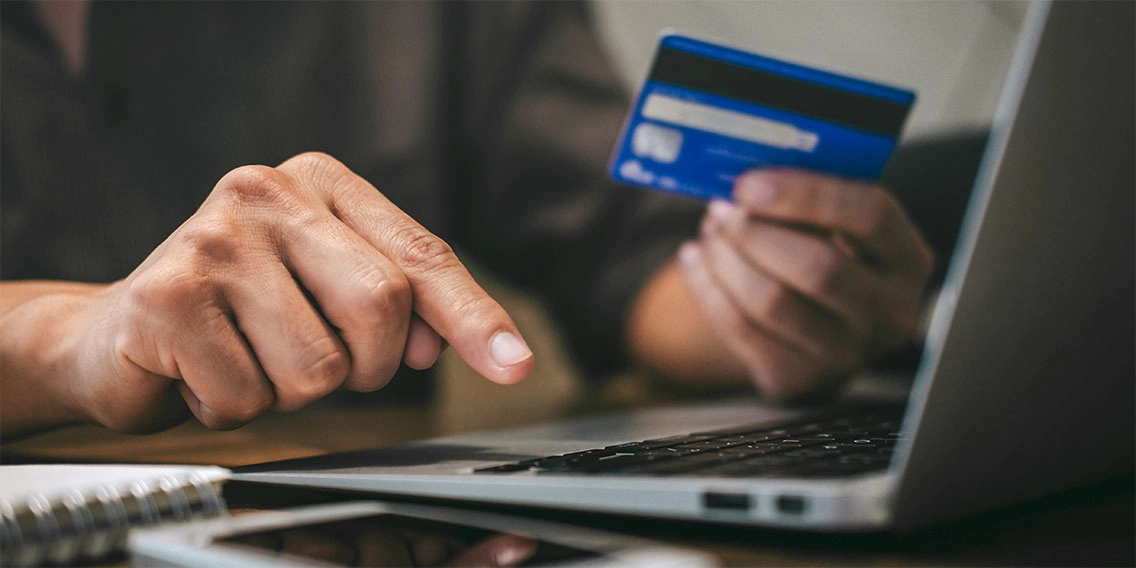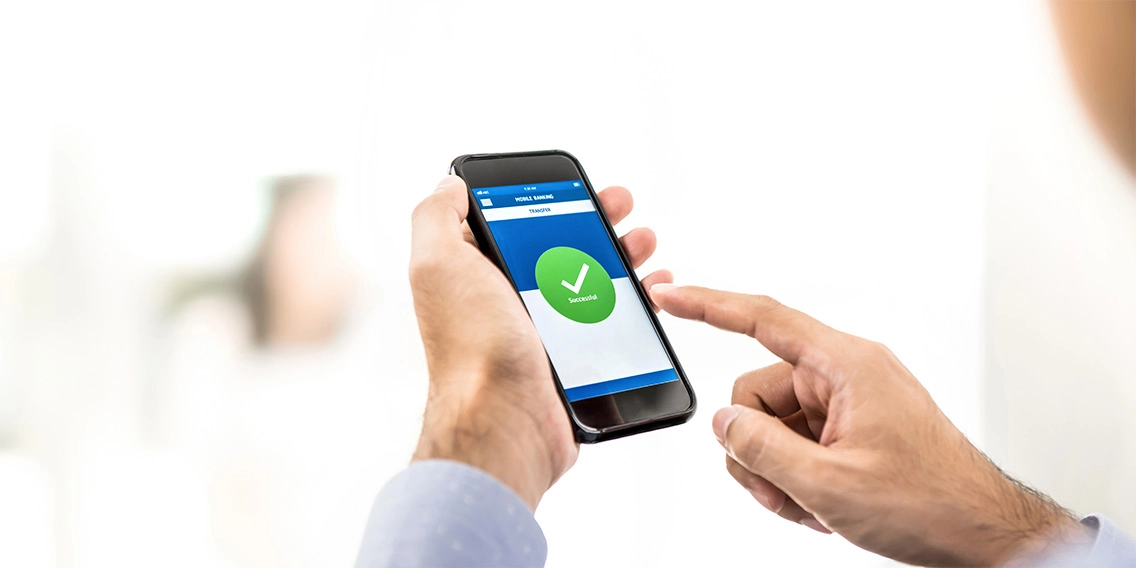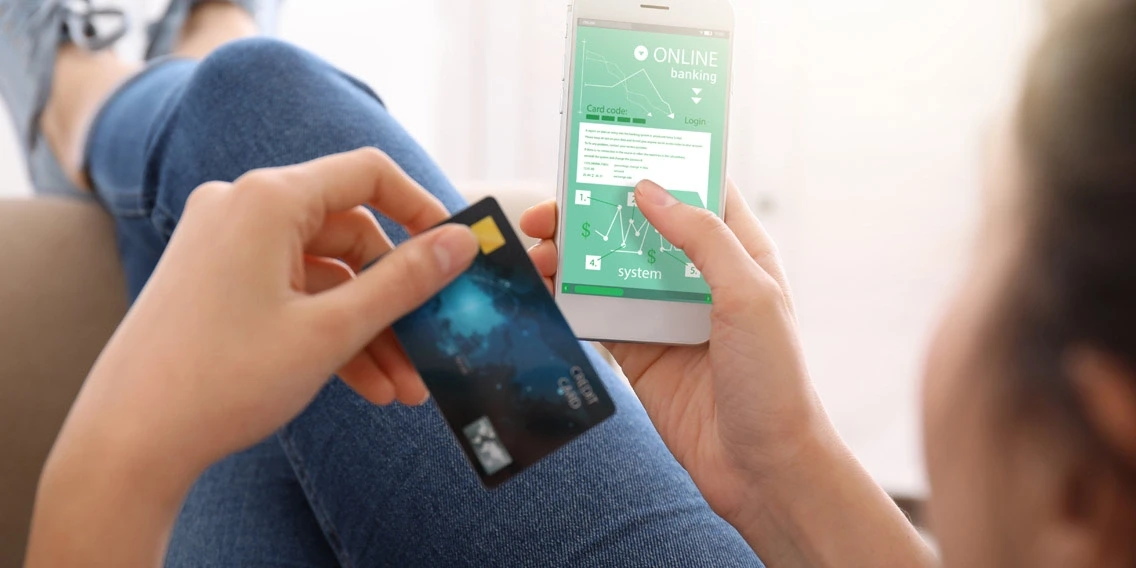Finance
13 Examples of Good and Bad Spending Habits
EXPECTED READ TIME:8 minutes
By making conscious choices, you can reduce your expenses, eliminate wasteful spending, and increase your savings. In other words, establishing better spending habits will help you achieve your bigger financial goals faster.
And the best thing about changing your spending habits? You don’t have to change all at once. Start with easier habits before progressing to harder ones. Over time, even small changes can add up to big results. We’ll show you where to start.
Good Spending Habits
Spending wisely is an important aspect of reaching your financial goals. After all, if your money goes to the wrong things, you’re going to come up short covering your essentials. Thankfully, you can start creating healthy spending habits today.
Save
Before you spend anything, save. Putting money in savings is one of the best ways to stay on track with your financial goals. Create an emergency fund to cover unexpected costs like a roof repair and to save for big things you want like family vacations — instead of paying for them with credit cards. You’ll avoid interest charges, plus you’ll know you’re spending within your means.
If you’ve never made saving part of your personal financial plan, you’ll be glad to know there are easy ways you can start saving money fast.
Create a Budget
A budget is both a plan for how to spend your money and a record of how you spend each month. It ensures you use your money in ways that line up with your financial goals. If you don’t know how, you can learn to make a budget in 6 steps.
Track Your Spending
We make so many small purchases daily — snacks from the vending machine at work, a coffee during our afternoon break, maybe even that unexpected late lunch with a coworker. Do you remember them all when you sit down to look at your finances?
Most of us don’t realize how much we spend. By recording your purchases as you make them, you’ll have a better record of your spending and that will prevent overspending. It also helps you improve your budget’s accuracy.
Make Purchases Purposefully
It’s tempting to buy things the moment they cross your mind, especially when online ordering makes it possible to buy from anywhere. But that also makes it easy to overspend. Instead:
- Keep a list of things to buy and set aside time to decide if those purchases match your financial goals
- Avoid spontaneous spending, particularly in checkout lines
- Use a list when you shop
Price Shop
Another advantage to planning purchases: you’ll have time to compare prices. You can look up prices manually by going to each store’s website. Use online tools to automatically locate the lowest price. These tools also show historic prices, allowing you to predict the best time to buy.
Cut Unused Subscriptions and Fees
Many of us have unused (or under-used) subscriptions we pay for every month. Maybe in your case it’s the infamous gym membership. For your neighbor, it might be a sixth streaming platform. Regardless, if you’re paying for something you don’t use, you’re throwing away money.
Canceling subscriptions doesn’t have to mean waiting on the phone for half an hour just to talk to someone who tries to convince you to keep subscribing. There are a number of tools to help you find and cancel unused subscriptions.
Check Your Progress Often
Whenever you revise your budget, keep a copy of the old one to look back on. Over time, you’ll see how much small changes have improved your finances. Track your savings, too, so you can take pride as they grow. It’ll motivate you to keep going when temptation strikes.
Bad Spending Habits
Irresponsible spending habits make it harder to achieve your financial goals. Because they develop slowly, you often don’t realize how big of an impact they have. But with a little self-reflection, you can break bad spending habits and adopt healthier ways of managing your money.
Relying on Credit Cards
Those who want to maximize reward card points often prefer to make purchases with their credit card and pay the card off each month. That can be a smart way of stretching your budget.
But if you’re carrying a balance month to month, you’re losing money in interest charges. Further, relying on credit cards to make ends meet may indicate you need to revise your budget and cut costs to gain better control of your finances.
Paying for Convenience
Whether it’s grabbing coffee on the way to work or picking up dinner on the way home, we all have habits that make life easier. The trouble is we often pay much more for a convenience item. (Compare the cost of one coffee at Starbucks to the cost of a whole can of coffee in your pantry.)
Consider ditching that breakfast sandwich on the way to work and enjoying some make-ahead meals instead. Small switches like this can add up to hundreds of dollars over the course of a year.
Shopping Without a List
People who browse stores tend to make more spontaneous purchases. Over time, impulse buys get expensive, making it harder to stick with your budget. Write out a list ahead of time to avoid these extra, unnecessary purchases. (Plus, you’re less likely to make a second trip to the store for items you’ve forgotten.)
Shopping Emotionally
It’s not unusual for our emotions to drive our purchases. In fact, a study from the Journal of Consumer Psychology shows that retail therapy can make you feel happier and in control.
But these effects are temporary, and once they wear off, you’re left with the same situation that caused those emotions, not to mention a burst budget. Take a walk, call a friend, pet your dog — but don’t pull out your wallet.
Shopping for Status
If you’re buying something to impress others or to have what everyone else has, you’re playing a losing game. It’s impossible to always keep up with every trend. On top of that, you may be cheating yourself out of items you actually want or need.
Shopping for Entertainment
Have you ever found yourself browsing the Amazon app on your phone out of boredom? If so, you’re not alone – 26% of people surveyed in 2020 admitted to buying things because they were bored.
Odds are the items you buy while bored aren’t items you need. They may not even be items you want. But they’re still pulling money from your budget and steering you away from your goals.
How to Break Bad Spending Habits
It may take years for you to unlearn habits you’ve had for a while, but you can find success if you’re honest with yourself and motivated to improve. Here are a few ways you can get started forming healthier spending habits.
Take Your Budget Seriously
A budget is like a garden — it needs tending. Set aside time regularly to check your actual spending against your budget. If the two don’t match, you will need to adjust. Depending on your situation, it may take a few months before your budget is set.
Similarly, respect your budget. It’s okay if gas goes up suddenly and you overspend on transportation one week. You can get back on track by adjusting the next week. But it’s a different matter if you decide to ignore your budget because you really, really want that TV that’s on sale. Remember: gas is a need, entertainment is a luxury. Stay committed and you will see positive changes.
Monitor Your Finances
Review your spending and your checking account balance weekly. If you wait until the end of the month and realize you’ve gone overbudget, you won’t have time to correct your spending. Plus, checking your account regularly keeps your spending habits at the front of your mind.
Spend Mindfully
Check in with yourself before you make non-essential purchases. Are you feeling stressed? Bored? Unhappy? Is this purchase fulfilling a want or a need? How does it support (or undermine) your financial goals?
If you find your desire to purchase something is more emotional than practical, try to redirect yourself to a healthier choice. Take a break, get some sun, or practice a favorite hobby. Make sure you’re meeting your needs in positive ways and not spending just to cope with unpleasant feelings.
Think Twice
Can’t decide if you should or shouldn’t make a purchase? Then don’t. Sometimes we feel pressured to make decisions right away, especially when advertisers hit us with sales or special temporary pricing. But making a purchase too fast isn’t smart shopping. Give yourself time to weigh the pros and cons before you commit.
Calculate the Cost
Before making a purchase, look at your checking account and subtract the purchase price from your balance. Do you like the number you get? Does that number work with your other expenses that week?
Calculating the cost of a purchase before actually making the purchase lets you see the consequences of that choice, which may persuade you to wait to buy something or skip buying it altogether.
Decide What Matters
Fun purchases aren’t a bad thing. We all have hobbies and interests that bring us joy. Investing money in those things is not a poor financial choice. Just make sure your spending is in line with your budget and other financial obligations.
One way to make sure fun spending fits financial goals is to decide what matters. If your main hobby is gaming and you want to buy a new chair for your gaming setup, you may have to sacrifice something else you care about less. For instance, if you also like golf (but you like it less than gaming), then you may forego new clubs to have the new chair instead.
The Takeaway
New spending habits can be intimidating, but with these small changes you can work toward big results. You may even enjoy some of the new habits you develop along the way — in fact, one benefit of greater discipline is often greater overall confidence. One thing you’re certain to enjoy is the greater financial freedom that comes from healthy spending habits.
Checking Accounts for the Way You Spend
Discover the diverse offering of products, services, and support available to our members.




